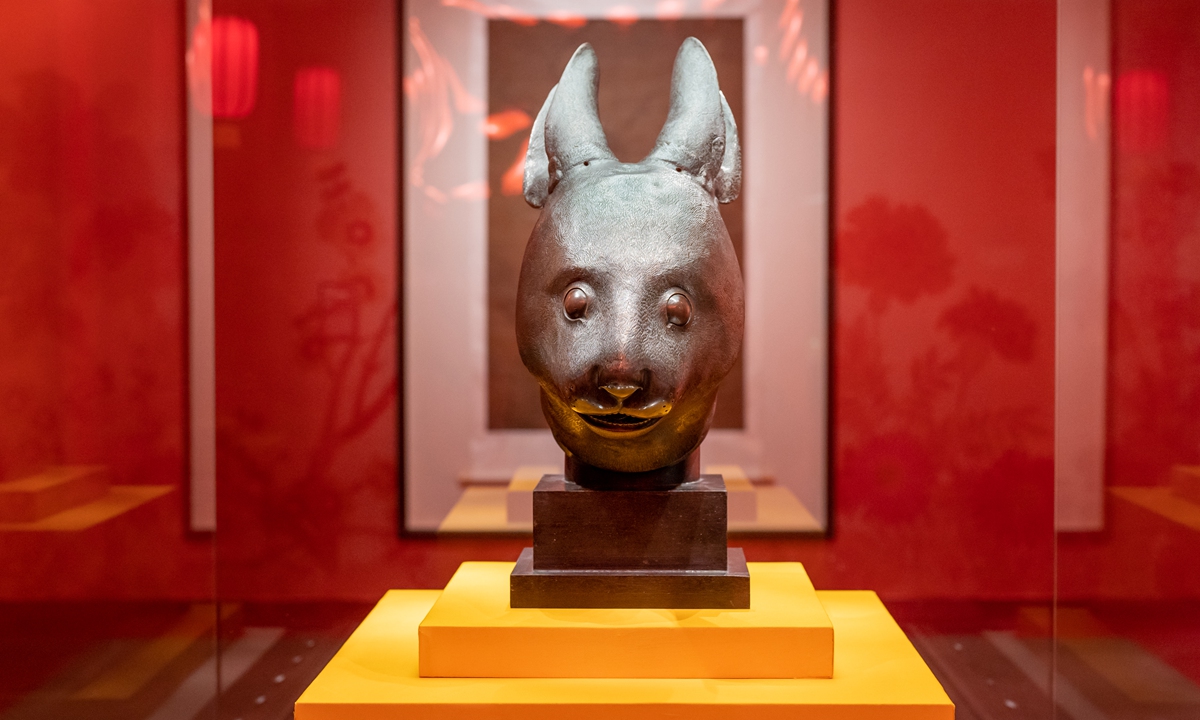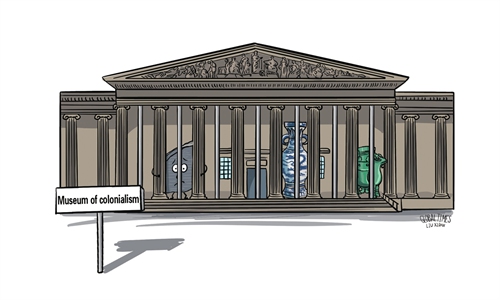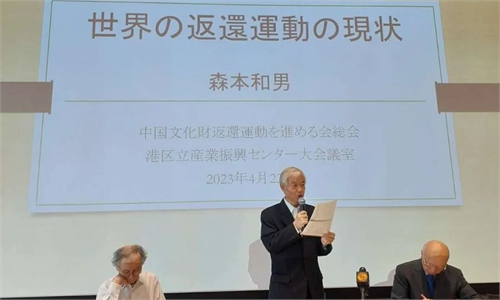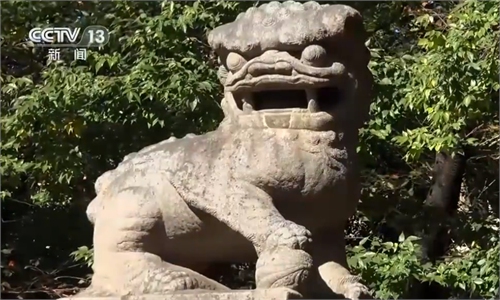ARTS / CULTURE & LEISURE
Calls to the British Museum to stop ‘21st century imperialism’ surge worldwide
Voices follow British Museum theft scandal

A bronze rabbit head sculpture looted from the Old Summer Palace by Anglo-French Allied Forces in 1860 Photo: VCG
A recent incident in which more than 2,000 artifacts were stolen from the world's prestigious public cultural facility, the British Museum in the UK, has become a cultural industry scandal that puts Western museums into a trust crisis while triggering emerging voices from countries such as China and Egypt, who are calling for the return of looted relics still held by the UK museum.
Requesting the British Museum to return Chinese relics plundered by the UK has now become a trending topic with more than 210 million views on China's Twitter-like platform Sina Weibo. Since Friday, Chinese netizens' voices have been surging as they demand the UK museum return relics that belong to China. Meanwhile, Hartwig Fischer, the director of the British Museum, has announced his resignation, while also noting the museum did not response to a warning of possible theft in 2021.
Cultural expert Yao Yu told the Global Times that the UK museum's "sluggish management and lack of responsibility for artifacts" are major reasons why China has growing petitions for the repatriation of relics.
"Maybe the museum's ignorance is because it has very few relics that actually belong to the UK," posted one netizen on Sina Weibo.
Currently, the museum has a total of 23,000 Chinese relics, while about 2,000 Chinese relics are on long-term display. The Chinese objects, spanning from the Neolithic age to the present, include paintings, prints, jade and ceramics.
In 1860, the Second Opium War (1856-60) culminated in British and French troops sacking the Old Summer Palace, or Yuanmingyuan, in Beijing. The looted art and cultural artifacts subsequently made their way to museums and private collections across Europe.
"The loss of cultural relics is a conscious or unconscious plunder by the colonial powers in colonial history," Huo Zhengxin, a professor of law at the China University of Political Science and Law, told the Global Times.
It is estimated that 10 million artifacts were stolen from China from the first Opium War (1840-42) to the War of Resistance against Japanese Aggression (1931-45). For example, some of China's oldest surviving paintings on silk and inscribed bronze ritual vessels are in the UK museum's collection.
Considering the fact that the British Museum has no list of the items lost, relic repatriation expert Wang Zhongjie told the Global Times that it is "hard to believe that no Chinese relics were lost in the stolen batch."
"And, I have to say those relics that are lost may very likely be lost forever and cannot be replaced," Wang warned.
The voices calling for the British Museum to return looted relics have become an international consensus in other countries like Nigeria, Greece and Egypt as well.
While Greece has been calling for the museum to return its marble sculpture that belongs to the Parthenon Temple, Abba Isa Tijani, the director general of Nigeria's National Commission for Museums and Monuments, has also questioned whether or not keeping relics in Western museums are the safest for them.
During an interview with UK's Sky News, Abba Isa Tijani said that Western countries and museums have been telling the public that it is unsafe to keep Benin's bronze artifacts in Nigeria, but they themselves have been involved in theft, which is "truly shocking."
"This is the 21st century, we need to make museums stop buying looted, stolen, or otherwise illegal artifacts," Zahi Hawass, Egypt's former minister of state for antiquities affairs, told the Global Times. He has been working on condemning the British Museum and asking it return Egypt's Rosetta Stone for years.
The cries have not just come from international society, voices in the UK have also emerged to condemn the British Museum.
Ribeiro-Addy, UK's Labour MP for Streatham, has publicly condemned the "lax" response of the museum.
"What makes it more awful is that they've been so lax about the [suspected] theft of other people's items that they haven't even bothered to assess what it is that they have… to know exactly what's been stolen," Ribeiro-Addy told the Guardian.
"I hope that other countries that have been colonized and plundered by the British will follow up and expose the British attitude towards colonial misdeeds," said one Sina Weibo user.



